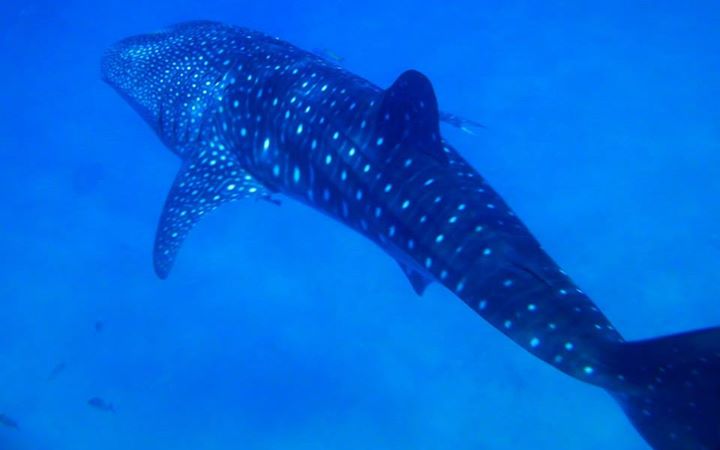Social media tools are increasingly being used by scientists to identify and track wildlife species. Through open source software solutions like Wildbook, scientists rely on crowdsourcing to conduct mark-recapture and animal biometrics. Or in other words, the wildlife photos and videos posted on Facebook, Flickr, YouTube, Vimeo, and other websites are used by scientists to tag and photo-identify individual animals.
A great example of this online collaboration is the effort to protect whale sharks, the largest fish in the world. Whale sharks are in danger of going extinct because of hunting, pollution, and habitat destruction. In support of conservation and scientific goals, whale shark photos are publicly sourced and then used for individual identification. This is possible because the spot patterns of whale sharks are unique, like the fingerprints of humans.
In recent years, marine scientists in the Philippines have used ‘citizen science’ contributions to identify and match previously tagged whale sharks. According to the Large Marine Vertebrates Project (Lamave), there are more than 700 whale sharks with photo identifications in the Philippines; 79 were identified through social media submissions by tourists, dive operators, and conservation expeditions.
Since it started work in 2012, Lamave has already identified 30 new individual whale sharks through social media research. Lamave emphasized that aside from being free, this method is also effective. It added that “conservation goals are met by engaging the public” while promoting responsible tourism. However, the public should also be aware about the proper way of photographing whale sharks since a seemingly harmless interaction with the animals can cause harm to them and their habitat.
Global Voices interviewed Jason Holmberg, information architect of Wildbook, to learn more about the link of social media and wildlife research.
Mong Palatino: How can social media tools contribute in the effort to protect whale sharks?
Jason Holmberg: More and more people are posting their whale shark videos online, and YouTube and Vimeo are proving to be very rich social media platforms for us! Last year 12% of our data came from YouTube and resulted in the tagging of an additional 100 new sharks.
Mong: How do citizen science platforms like Wildbook contribute to the work of scientists and environmentalists?
Jason: Wildbook is helping scientists collaborate online in studying wildlife populations. Importantly, different research communities for different species are benefiting from each others’ investment in Wildbook as free and open source software. It also provides an avenue for data from the public to flow into structured wildlife studies.
Mong: What are the challenges facing citizen science? How can we improve or encourage greater public involvement to support projects like Wildbook?
Jason: As an information architect, I see a major challenge to citizen science in data management. Researchers need more engaging tools (such as game-like techniques) to hold potential citizen scientists’ attention and increase data collection while sequencing that data into structured studies and databases where the data is usable and searchable. For whaleshark.org, the public can help by either financially supporting the project through adopting a shark under study or by spreading the word that we need the public's photos and videos of whale sharks and that their contribution of data makes a difference and is directly used in research.
Scientific papers have been published which recognize that “publicly sourced data allowed for the accurate estimation of abundance of whale sharks.” Hopefully, this will encourage more tourists and divers to take photos and videos of wild sharks and submit them to marine scientists and environmentalists.







